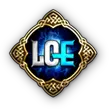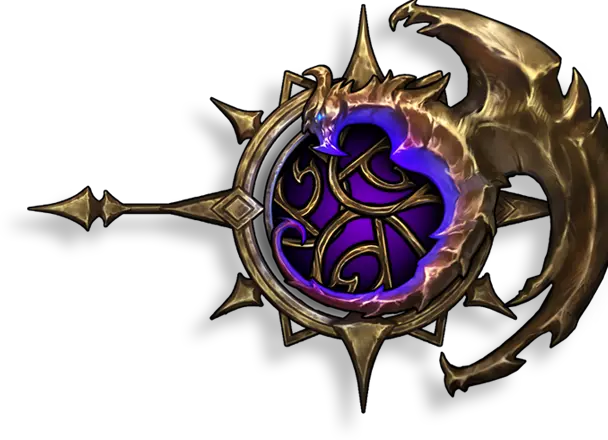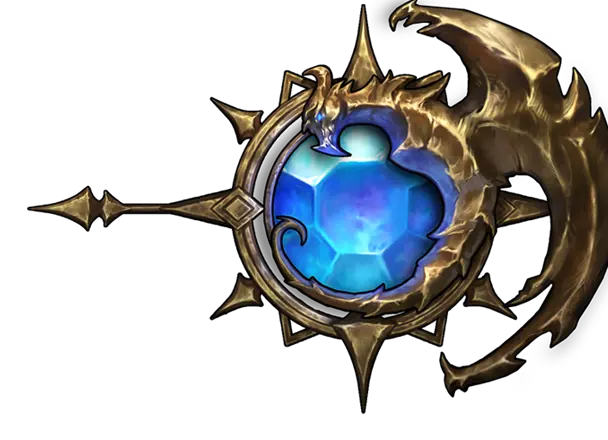Legends of Elysium vs One Piece Card Game
One Piece Card Game: Tactical and Strategic Breakdown
Tactic in One Piece Card Game
The tactical element in the One Piece Card Game revolves around precise card management, resource allocation, and decision-making during battles. Each player takes the role of a captain with a unique Leader Card, and tactics involve protecting your Leader while aiming to reduce your opponent’s life points to zero. The game rewards careful planning of attacks, defence, and counterplay.
Key Tactical Features:
- Resource Management: The use of Don!! cards as the primary resource adds a dynamic layer to tactical play. Players must carefully allocate Don!! cards to power their characters or trigger event cards at the right moment.
- Timing of Attacks: Players must tactically decide when to attack with their characters and when to conserve resources for future turns. Misjudging timing can leave you vulnerable.
- Counterplay: The game includes defensive cards and counter abilities that can interrupt an opponent’s strategy, requiring players to think several steps ahead.
Strategy in One Piece Card Game
Strategic depth is a hallmark of the One Piece Card Game, with long-term planning needed to build a synergistic deck and adapt to opponents’ strategies. Choosing the right Leader Card is crucial, as it defines the core strategy of your deck.
Key Strategic Elements:
- Leader Card Selection: Each Leader Card has a unique ability that influences deck-building and gameplay style. For example, a Leader with an aggressive ability favours a fast-paced strategy, while a defensive Leader requires patience and resource management.
- Deck Building: Building a deck involves selecting characters, events, and stage cards that work together to maximise the Leader’s strengths. Players must balance between offensive and defensive cards, ensuring they can adapt to different opponents.
- Adaptation: As the meta evolves, players must continuously adapt their strategies to counter popular decks and exploit weaknesses in opponents’ setups.
Collectible Aspect in One Piece Card Game
The collectible aspect is a core appeal of the One Piece Card Game, drawing fans of the anime and manga series. The game offers a wide variety of beautifully illustrated cards featuring iconic characters and moments from the series.
Key Collectible Features:
- Unique Artwork: Many cards feature exclusive artwork, making them highly desirable for collectors. Special rarities, such as Super Rare and Secret Rare, add to the excitement of collecting.
- Thematic Sets: Card sets are themed around different arcs and storylines from the One Piece universe, making each set a nostalgic journey for fans.
- Chase Cards: Certain cards, especially in higher rarities, are challenging to find, increasing their value and desirability among collectors.
Trading Aspects in One Piece Card Game
Trading plays a vital role in the game’s ecosystem. Players can trade cards to complete their decks, obtain rare collectibles, or diversify their strategies.
Key Trading Features:
- Card Market: A robust secondary market exists for buying, selling, and trading cards. Rare cards can fetch high prices, making the game both a hobby and an investment opportunity.
- Community Engagement: Trading often happens at local game stores, tournaments, and online forums, fostering a strong community spirit.
- Exclusive Promos: Promotional cards distributed at events or through special campaigns are highly sought after, adding a unique trading element to the game.
Gameplay Mechanics in One Piece Card Game
The gameplay mechanics in the One Piece Card Game are a blend of traditional TCG systems with unique innovations that keep the gameplay fresh and engaging.
Unique Gameplay Mechanics:
- Don!! Cards: The Don!! system is a unique mechanic that acts as both a resource and a gameplay element. Players attach Don!! cards to their characters to boost their power, creating tactical flexibility.
- Leader Cards: Each player starts with a Leader Card that represents their deck’s core strategy. The Leader’s life points and abilities shape the flow of the game.
- Event and Stage Cards: These cards introduce dynamic effects that can change the course of a game, offering players a way to respond to their opponent’s actions.
- Trigger Abilities: Some cards have Trigger effects that activate when drawn as a life card, adding an unpredictable element to the game.
What Sets One Piece Card Game Apart
- Immersive One Piece Theme: The game immerses players in the One Piece universe, with each card telling a story and bringing characters to life in a unique way.
- Dynamic Don!! System: The innovative Don!! system provides a fresh take on resource management, adding depth and tactical flexibility to each turn.
- Balanced Complexity: The game strikes a balance between accessibility for newcomers and strategic depth for seasoned players, making it appealing to a wide audience.
- Community-Driven: Regular tournaments, community events, and new set releases keep the player base engaged and the meta evolving.
In conclusion, the One Piece Card Game stands out in the TCG/CCG market by blending classic card game mechanics with unique features inspired by the beloved anime and manga series. Its innovative systems and immersive theme make it a must-play for both fans and strategy enthusiasts alike.
Legends of Elysium Compared to One Piece Card Game – Gameplay Mechanics
The gameplay mechanics of Legends of Elysium set it apart by blending traditional trading card game systems with dynamic board game elements, creating a multi-layered tactical experience. Unlike the One Piece Card Game, which primarily focuses on character strength through Don!! card attachments, Legends of Elysium introduces a unique hex-based board that requires players to manage both their cards and the evolving battlefield. Each player must carefully terraform hex tiles to meet the resource requirements of their cards, adding a layer of strategic positioning absent in most TCGs. This terrain control system encourages players to think beyond their hand of cards, making board state as critical to success as the cards they play. Additionally, players must balance their mana economy with land placement and unit deployment, ensuring that every move on the board contributes directly to their victory conditions. By integrating spatial tactics and card strategy, Legends of Elysium offers a richer, more immersive gameplay experience than the character-driven combat seen in the One Piece Card Game, pushing players to master not only their decks but also the battlefield itself.
Legends of Elysium Like One Piece Card Game – Similarities
Both Legends of Elysium and the One Piece Card Game share a foundation in core TCG mechanics that appeal to seasoned players and newcomers alike. At their heart, both games focus on strategic deck-building, where players craft powerful combinations of characters, events, and abilities to outwit their opponents. Like in One Piece, Legends of Elysium introduces the concept of leader-driven gameplay, where a chosen hero card defines the overarching strategy of a deck. Both games also feature a distinct resource management system—Don!! cards in One Piece and hex-based land control in Legends of Elysium—that dictates the tempo and flow of matches, demanding foresight and adaptation. Additionally, both games embrace a thematic narrative: in One Piece, players relive iconic moments from the beloved anime, while Legends of Elysium invites players into a rich fantasy world shaped by epic battles and ancient lore. Lastly, both games place a strong emphasis on tactical decision-making within turn-based combat, ensuring that victory is achieved through calculated plays rather than sheer luck. By integrating these classic TCG elements, both titles provide a familiar yet unique experience for fans of the genre.
Legends of Elysium vs One Piece Card Game – Key Differences
While both Legends of Elysium and the One Piece Card Game thrive on tactical decision-making and strategic deck-building, their core gameplay diverges significantly, creating unique experiences tailored to different types of players. The most striking difference lies in board control mechanics. In Legends of Elysium, the hex-based board is a dynamic battlefield where players terraform lands, manage terrain, and control special hexes to gain advantages. This spatial layer requires players to think beyond traditional card play, introducing an element of tactical positioning akin to board games like Catan. In contrast, the One Piece Card Game focuses more on resource management through the Don!! system, where players attach resources to boost characters’ power, creating a more straightforward yet equally strategic experience. Another key distinction is hero customisation in Legends of Elysium, where players choose heroes that influence gameplay styles, granting unique abilities and passive bonuses, adding long-term strategy depth. Additionally, Legends of Elysium incorporates a blockchain economy, allowing players to own, trade, and monetise digital assets, whereas the One Piece Card Game sticks to a more traditional collectible card format. These differences highlight how Legends of Elysium pushes the boundaries of TCG gameplay by blending familiar mechanics with innovative board game elements and digital asset ownership.
Tactic and Strategy in Legends of Elysium
In Legends of Elysium, mastering tactics and strategy is akin to forging your path to victory with both wisdom and might. Unlike conventional TCGs, where success is often dictated by card draws and deck composition alone, Legends of Elysium requires players to adapt dynamically to an evolving battlefield. Tactical decisions begin from the very first turn, as players terraform hex tiles to create resource-rich lands, enabling the summoning of powerful units. Each hex placement alters the strategic landscape, demanding foresight in positioning and anticipating your opponent’s moves. The game encourages a balance between short-term tactical plays—such as controlling key hexes to gain immediate advantages—and long-term strategies centred around hero abilities, deck synergy, and resource management. Victory comes not just from overwhelming your enemy but from outmanoeuvring them on the board, exploiting their weaknesses, and leveraging terrain to gain crucial bonuses. The unique combination of board control and deck-building strategy ensures that no two battles are ever the same, challenging players to remain vigilant and adaptable. In Elysium, every move shapes the story, and every decision carries the weight of destiny.
Legends of Elysium as Alternative to One Piece Card Game
For players seeking a fresh challenge beyond the familiar shores of the One Piece Card Game, Legends of Elysium offers a compelling voyage into deeper tactical and strategic waters. Where One Piece excels in fast-paced resource management and iconic character-driven gameplay, Legends of Elysium elevates the experience with a unique blend of card mechanics and board control, demanding mastery of both spatial positioning and long-term planning. The addition of a hex-based board transforms each battle into a complex, ever-shifting puzzle, making terrain control and tactical foresight critical for success. Furthermore, hero customisation in Legends of Elysium empowers players to tailor their gameplay style, choosing heroes whose abilities influence deck strategies and battlefield tactics. Unlike traditional CCGs, Legends of Elysium also integrates blockchain technology, offering players true ownership of their cards and the opportunity to trade, stake, or monetise their assets in a thriving marketplace. This fusion of strategy, innovation, and community-driven governance positions Legends of Elysium as a worthy alternative for seasoned card game veterans eager to test their mettle in a new, dynamic universe where every decision shapes the unfolding narrative of Elysium.
Conclusion
Legends of Elysium stands as a beacon for those who seek more than just a card game — it offers an immersive journey into a world shaped by cunning strategies, rich lore, and dynamic gameplay. It is a realm where the bold thrive, where each decision ripples across the battlefield, and where victory belongs to those with the foresight to plan and the courage to adapt. For players of the One Piece Card Game looking for their next grand challenge, Legends of Elysium provides an intricate and rewarding alternative, blending the familiar thrill of deck-building with the unique twist of tactical board control. With its deep fantasy narrative, hero customisation, and innovative mechanics, this game invites strategists and tacticians to write their own legends within the ever-evolving saga of Elysium. So, noble adventurer, are you ready to carve your name into the annals of Elysium’s history? The battlefield awaits, and only the most cunning will emerge victorious. Step forth and embrace your destiny!
| Feature | Legends of Elysium | One Piece Card Game |
|---|---|---|
| Gameplay Mechanics | Combines TCG mechanics with a hex-based board for spatial tactics and terrain control. Players must manage both card strategy and board positioning. | Focuses on character-driven combat using Don!! cards as a resource system. Gameplay revolves around leader cards and managing power boosts. |
| Tactic and Strategy | Requires a balance between short-term tactical plays and long-term strategies. Players must adapt to an evolving board and anticipate opponent moves. | Emphasises deck-building and resource allocation. Success depends on managing Don!! cards and knowing when to attack or defend. |
| Collectible Aspect | Offers blockchain-based card ownership, allowing players to trade and monetise their assets. Includes customisable heroes with unique abilities. | Highly collectible cards featuring characters and moments from the anime. Includes rare cards like Super Rare and Secret Rare. |
| Trading | Players can trade digital assets via a blockchain marketplace, ensuring true ownership and value retention. | Has a robust secondary market for trading cards. Community trading happens at tournaments and online forums. |
| What Sets It Apart | Fuses card gameplay with tactical board game elements. Offers true asset ownership through blockchain and community-driven governance. | Immersive theme based on the One Piece universe. Simple yet deep mechanics that appeal to both casual and competitive players. |







